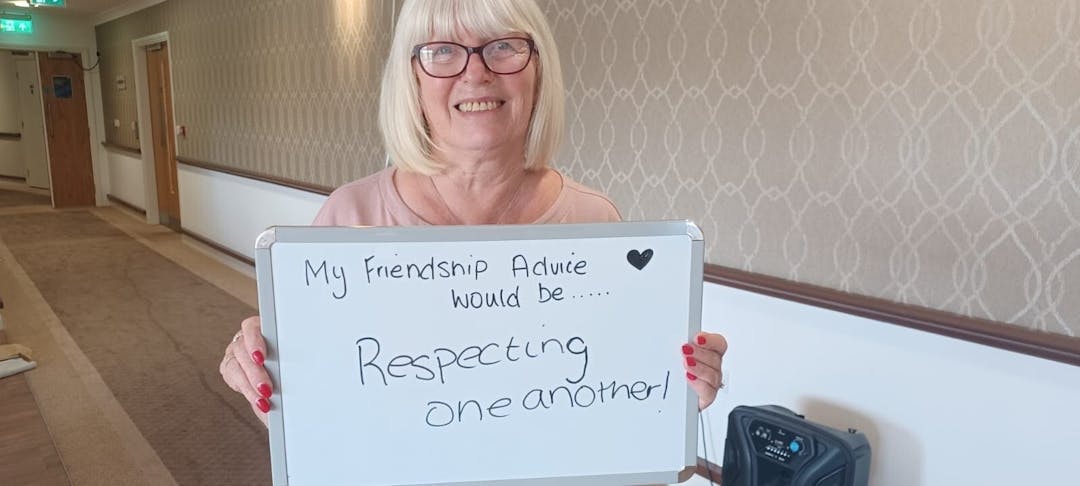Care Statistics | Lottie’s Care Seeker Survey Explains The State of Elderly Care In 2024

Estimated Reading Time: 7 minutes
After surveying over 1,000 care seekers who have searched for care in the UK over the last two years, we uncovered a range of challenges facing care seekers in 2024. More specifically, 74% of families face challenges when it comes to funding their care, with average care costs increasing to £64,000 per year, an 8% increase over the last 12 months.
This article deep-dives into our findings, including how the process of finding care in 2024 works, what care seekers consider most important when looking for a care home and how they pay for their care.
Discover further care seeker insights
Read our full 2024 care seeker and care industry analysis.
Top 5 Challenges Facing Care Seekers in 2024
1. Lengthy search process
Finding a care home now takes five weeks - 30% longer than in 2021 - plus an additional two weeks to move in. This 7-week process leaves families making rushed decisions, with 44% regretting their choice. Early planning is crucial for better outcomes.
2. Rising care costs
Care home costs have surged to £64,000 annually, an 8% increase in the last year. 65% of families use personal savings to fund their care. Despite rising costs, government support remains limited, highlighting the need for early financial planning.
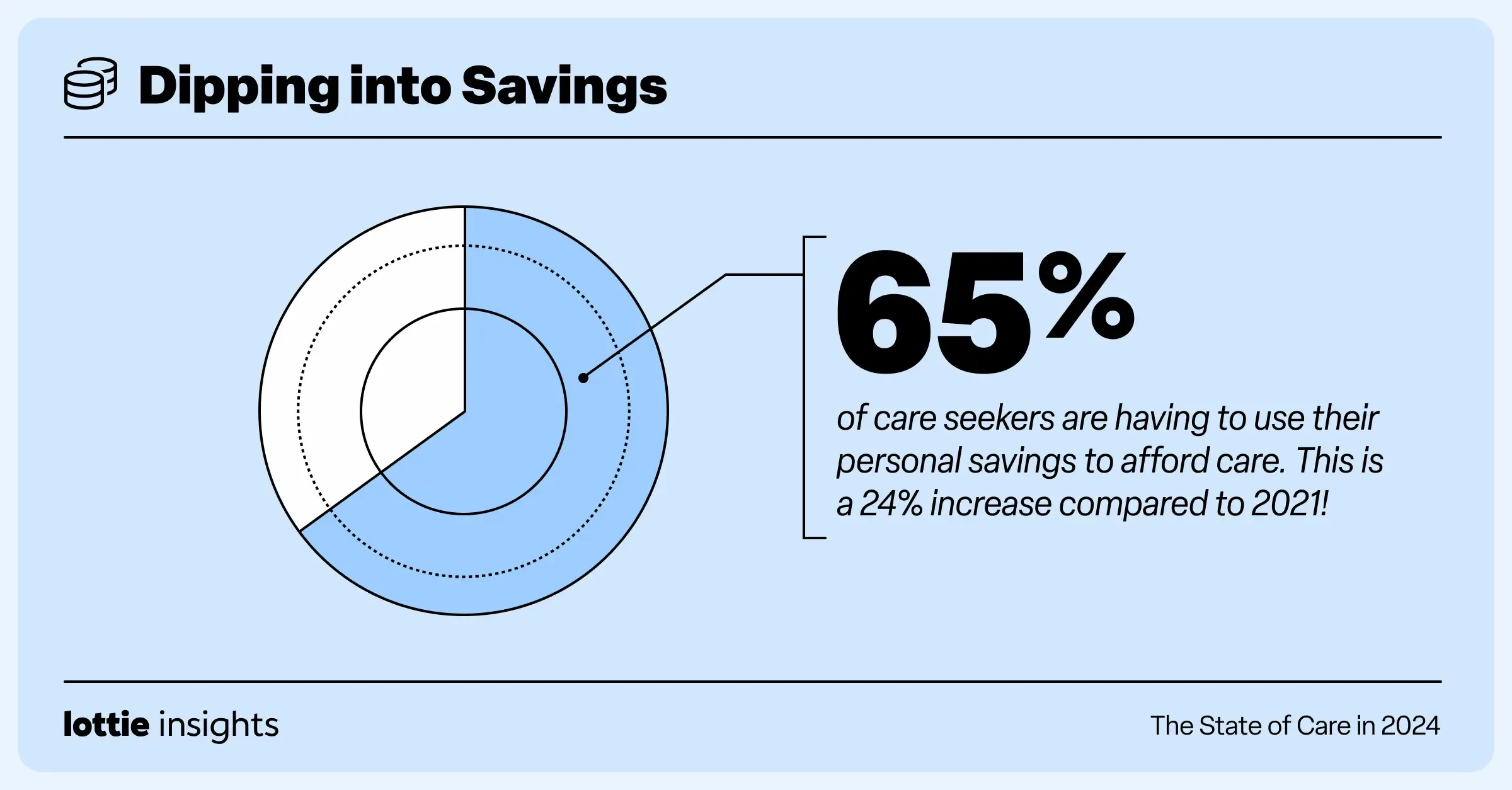
3. Lack of funding awareness
One in five care seekers are unaware of the benefits available to them, leaving £3.5 billion unclaimed each year. More accessible resources are urgently needed to guide families through the complex funding landscape.
4. Pricing transparency issues
Almost two-thirds of care seekers feel that additional fees are unfair, and 68% worry about being overcharged. Clear communication from care providers is essential to restoring confidence.
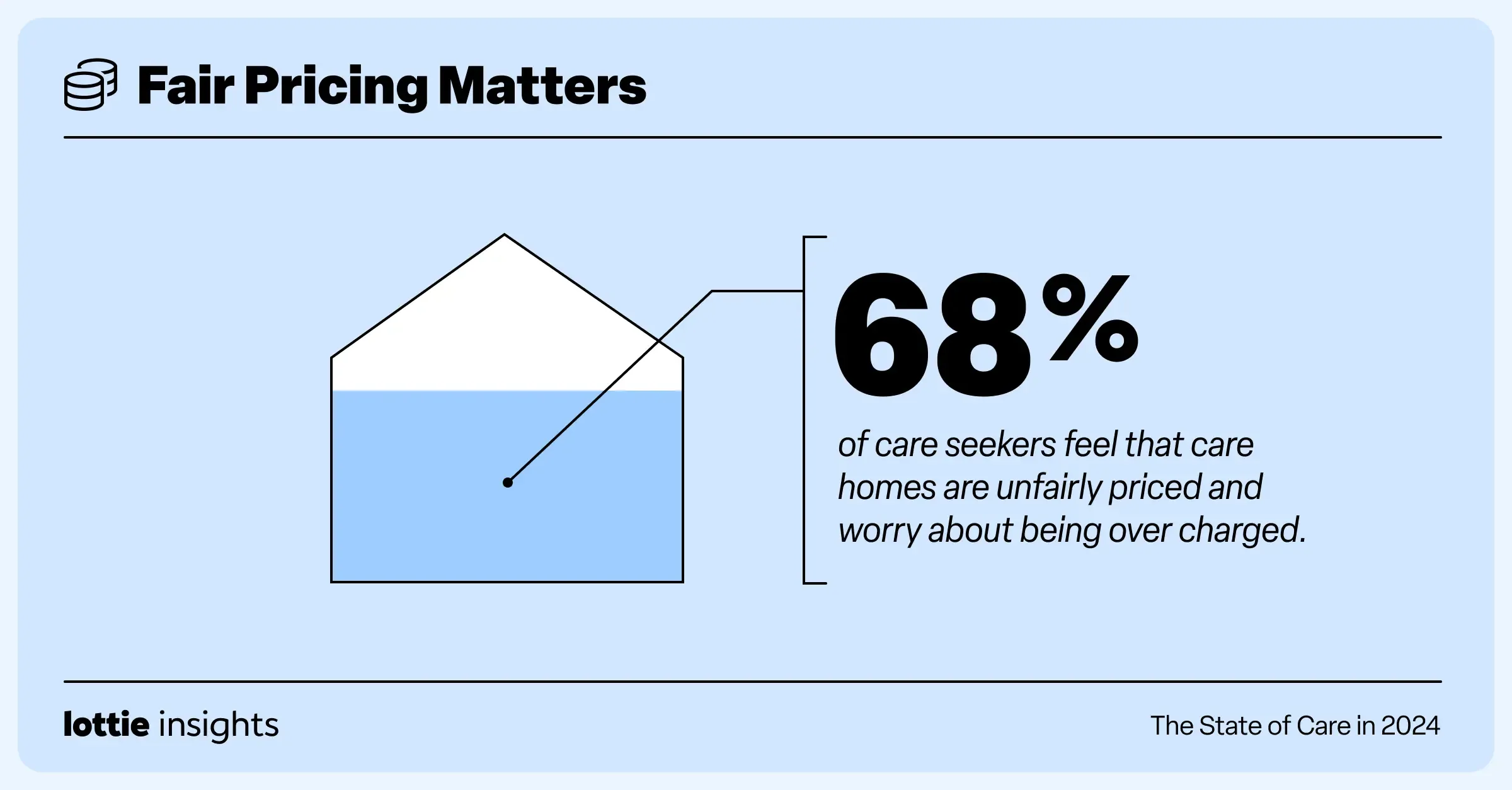
5. Balancing caregiving responsibilities
83% of families provide unpaid care before turning to professional services. With an ageing population and limited government support, this growing burden highlights the need for stronger resources and assistance.
How Do Care Seekers Find Care?
Multiple care home visits are needed
The average number of care homes people visit before making the final decision is 3.5. This number is slightly lower for the youngest and oldest groups of care seekers we spoke to. Meanwhile, the type of care being searched for had little effect on the number of homes visited.
The search process has gotten longer
The average time to find a care home has risen by 30% since 2021. As a result, many families have made rushed decisions, and 44% regret their choices.
The average search length in 2024 is 4.8 weeks, while it takes a further 2.2 weeks for a loved one to move into a care home once a decision has been made. As a general rule, the longer the search process, the longer the move-in time that follows.
While care seekers are taking longer to find their perfect home, many wish they’d started looking even earlier, with 24% of respondents wishing they’d taken more time. What’s more, people found longer searches to be increasingly stressful, with 92% of care seekers saying that a search which lasted more than six weeks was a very stressful experience.
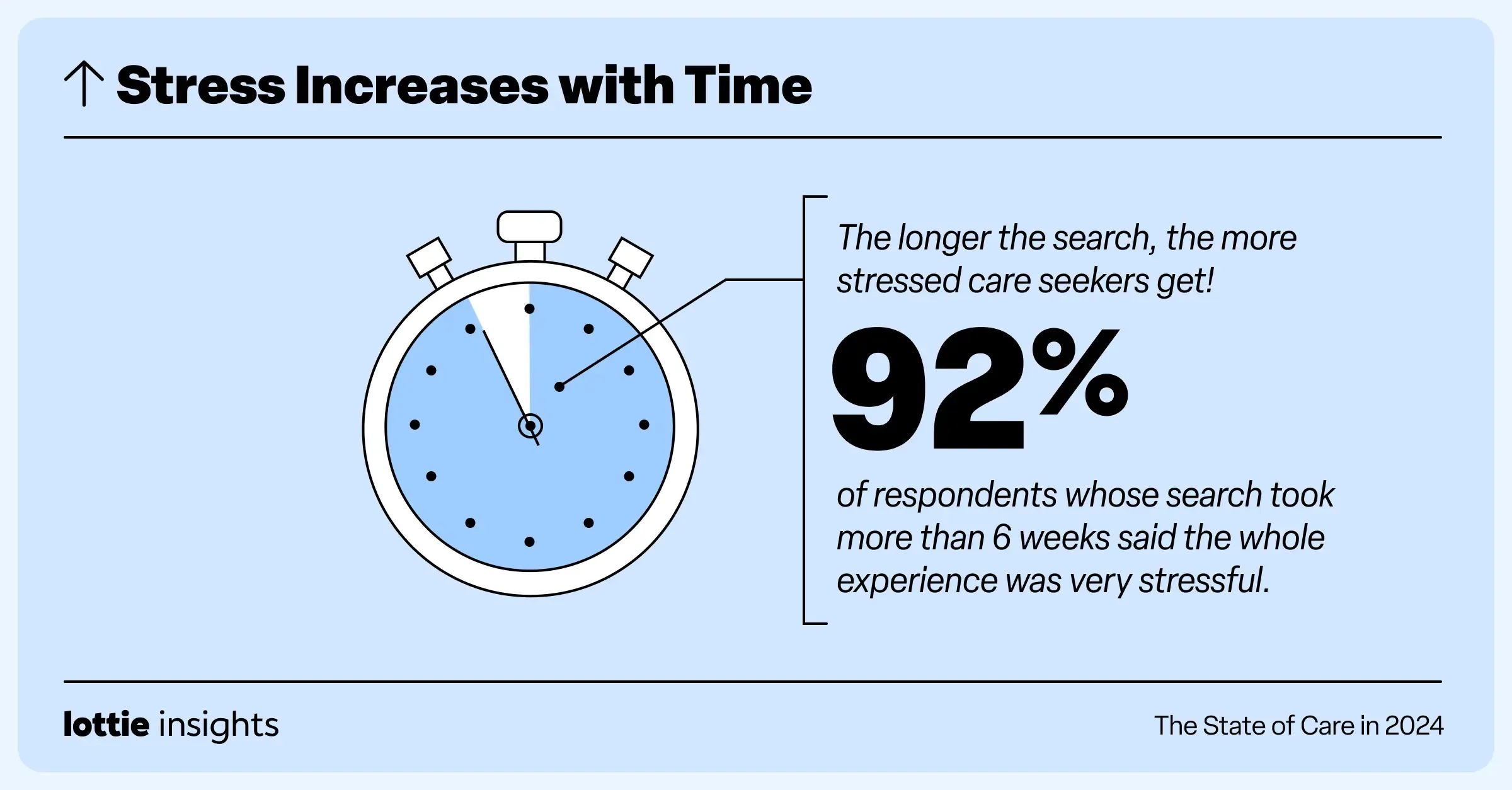
Care seekers are becoming more tech-savvy
From 2021 to 2024, the number of people searching for care on their mobile phones increased by 600%. Now, 43% of care seekers use their mobiles when looking for care, compared to just 7% in 2021.
Social media has also become more influential in the care search, with many care seekers using platforms like Facebook to find what they’re looking for, often through paid advertisements targeted specifically to them.
What Do Care Seekers Consider When Picking a Care Home?
Management and staff are the most important consideration
Our survey found that good management and staff are now the most important factors when choosing a care home, with 64% of care seekers highlighting the importance of this. Management and staff were considered the third most important factor in 2021, so this has increased by a large margin over the last three years.
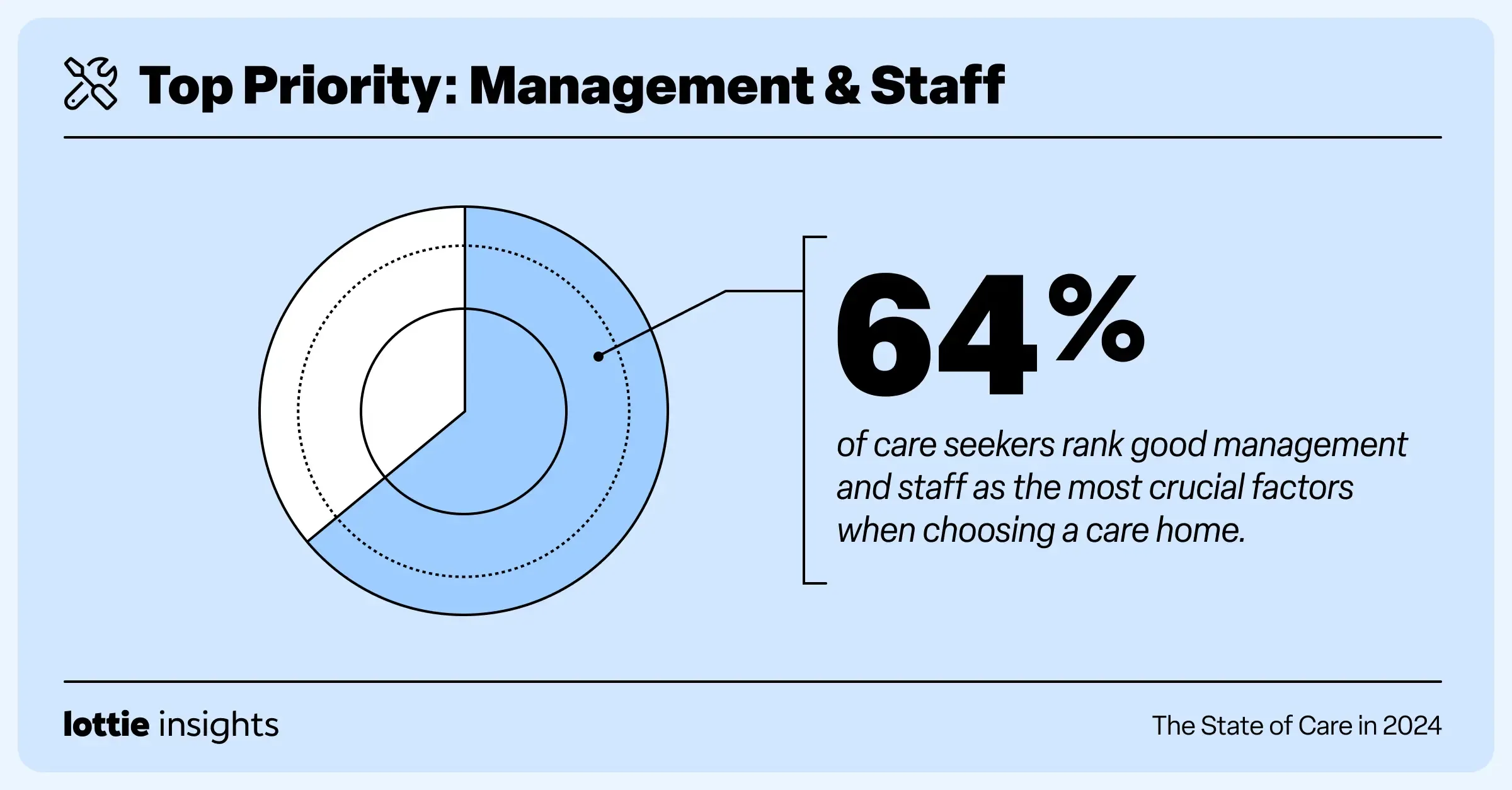
Ratings and reviews are also very important
Two other very important factors for care seekers when choosing a care home are ratings and reviews. 56% of care seekers said they consider ratings, while 49% said they actively look at care home reviews.
Care homes in the UK are rated by regulators, such as the Care Quality Commission (CQC) in England, which scores every care service as ‘Outstanding’, ‘Good’, ‘Requires Improvement’ or ‘Inadequate’. These ratings can be found on your country’s regulator's website.
Care home reviews are found through search engines like Google and on several care home comparison websites.
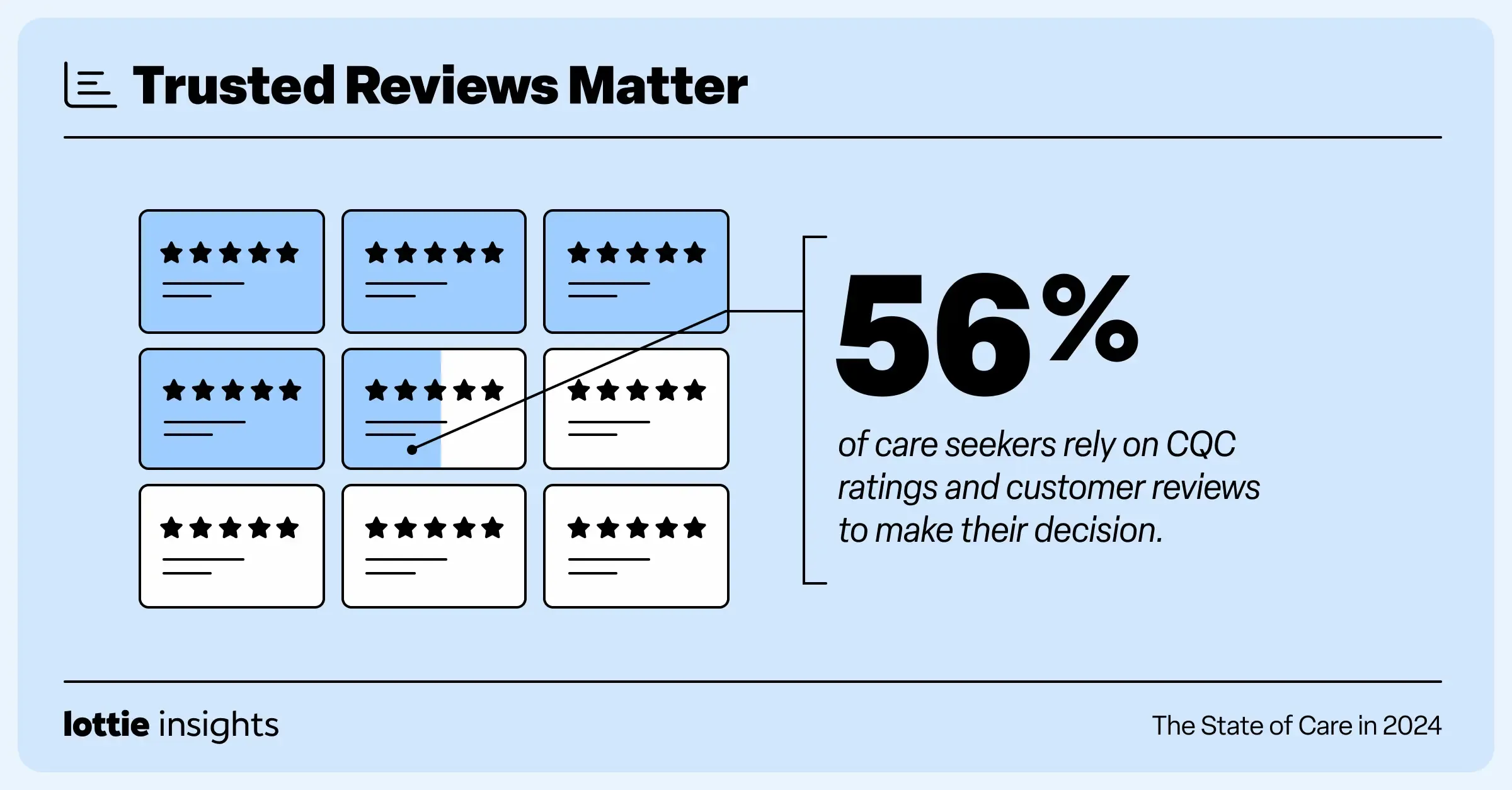
A care seeker’s age affects what matters most at a care home
Older adults care more about the location of a care home and whether it has en-suite facilities, while slightly younger adults care more about the facilities and activities on offer within a care home. We also have an article explaining the average age people go into care homes.
How Do Care Seekers Pay For Their Care?
More care seekers are paying for care themselves
Our findings indicate that government funding hasn’t kept up with the cost of living. In 2024, 65% of care seekers had to rely on personal savings to fund their care, an increase of 24% from 2021.
This increase means that 78% of care seekers find the process of funding care a stressful experience, while 76% feel there isn’t enough government information and support available regarding funding care in a care home.
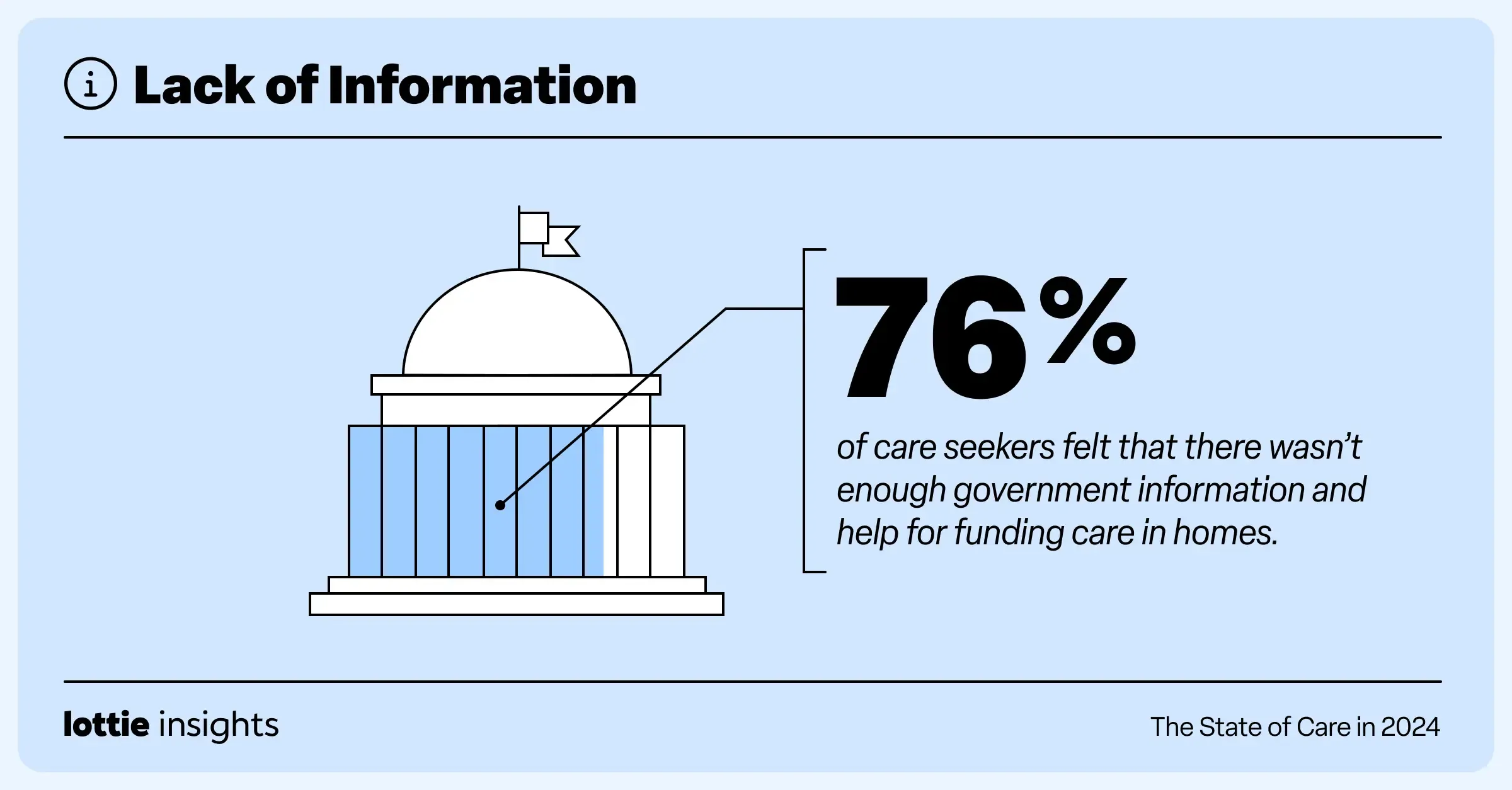
There’s a greater awareness of the benefits available
While most people are aware of the benefits they can claim, this awareness and information largely doesn’t come from the government, the NHS or care providers.
The most common way people learn about the benefits available to them is through word of mouth and independent research, with 38% of care seekers learning about benefits available to them this way. Meanwhile, just 23% of respondents learned about benefits from Government or NHS sources.
The most widely-known benefit is Carer’s Allowance, which 59% of care seekers were aware of, while benefits such as Attendance Allowance and Personal Independence Payment (PIP) were less widely known.
20% of respondents weren’t aware of any benefits they could claim.
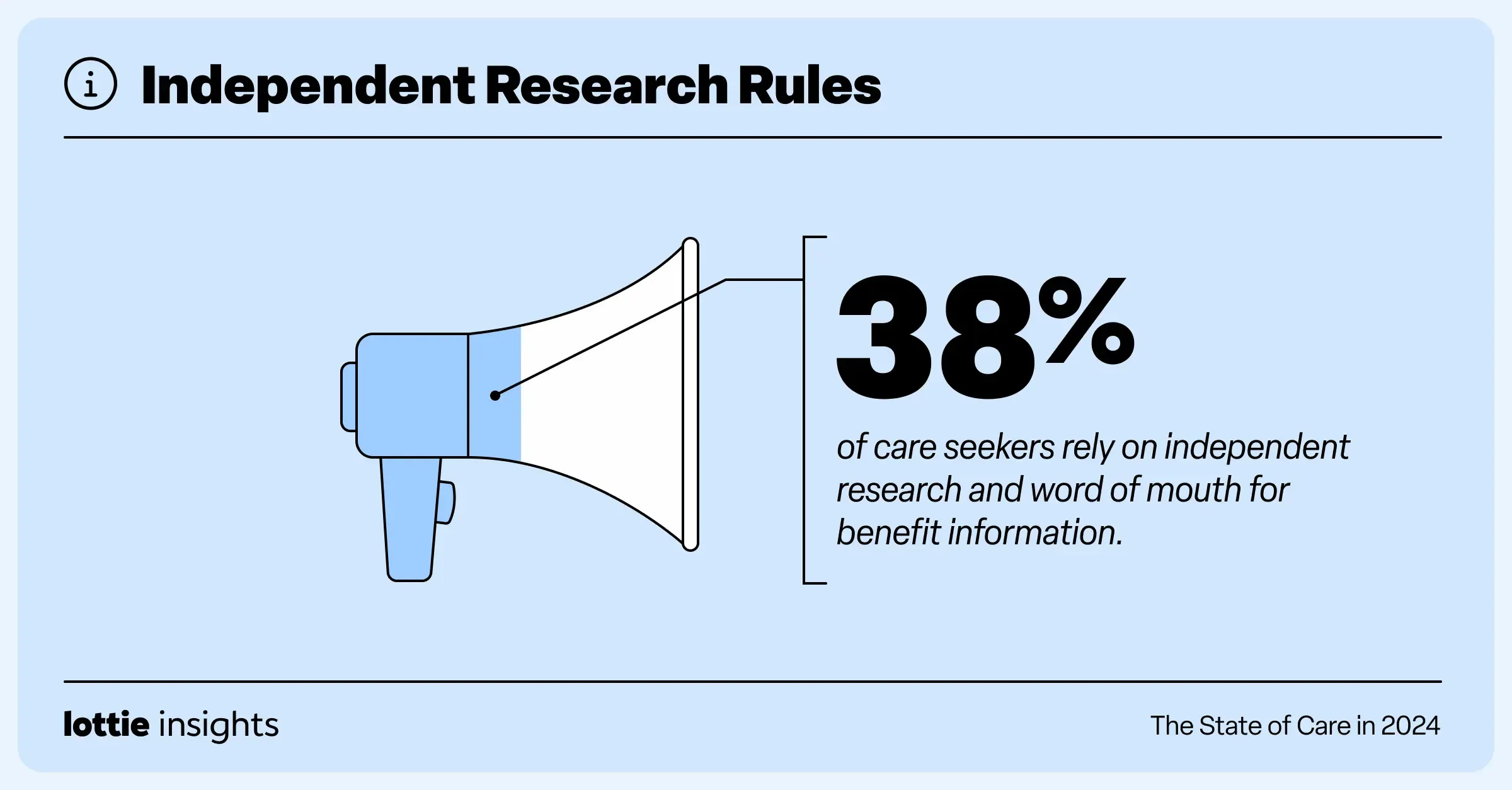
What Changes Would Care Seekers Like To See Care Providers Make In the Future?
- 30% of respondents want more transparency about costs, the services offered and what a typical day looks like in a care home
- 15% of respondents want better communication, including prompt responses, more accurate information and more open interactions during care home visits
- 12% of respondents highlighted the importance of having more staff who are all fully trained
- 7% of respondents want to see a full and detailed list of the care options available. They also want to know more about how care would be tailored to their loved one’s specific needs
Easing The Care-Seeking Process
Families often face critical care decisions under intense pressure, whether due to a sudden health crisis or an unexpected hospital stay. These hasty choices can lead to limited options, higher costs, and regret. Planning ahead allows families to explore a wider range of care options and financial solutions, resulting in better outcomes and peace of mind.
We must break down the barriers preventing open discussions about future care needs. Talking about care should not be taboo - it is essential for preparing for a fulfilling future for our ageing loved ones and avoiding unnecessary stress and costs.
Sparked by the complexities and challenges families face when navigating elderly care, Lottie’s online care finder platform is dedicated to simplifying the search for care by empowering care seekers across the UK.
Through connecting users with a selection of care homes, home care providers, and retirement communities, we offer a transparent, user-friendly marketplace. Families can easily compare care options and information about costs and services. With expert guidance and an extensive range of online resources, we support families in making informed decisions to find the best care solution. Since launching in July 2021, we have helped hundreds of thousands of families find the best care solution for their loved ones.



